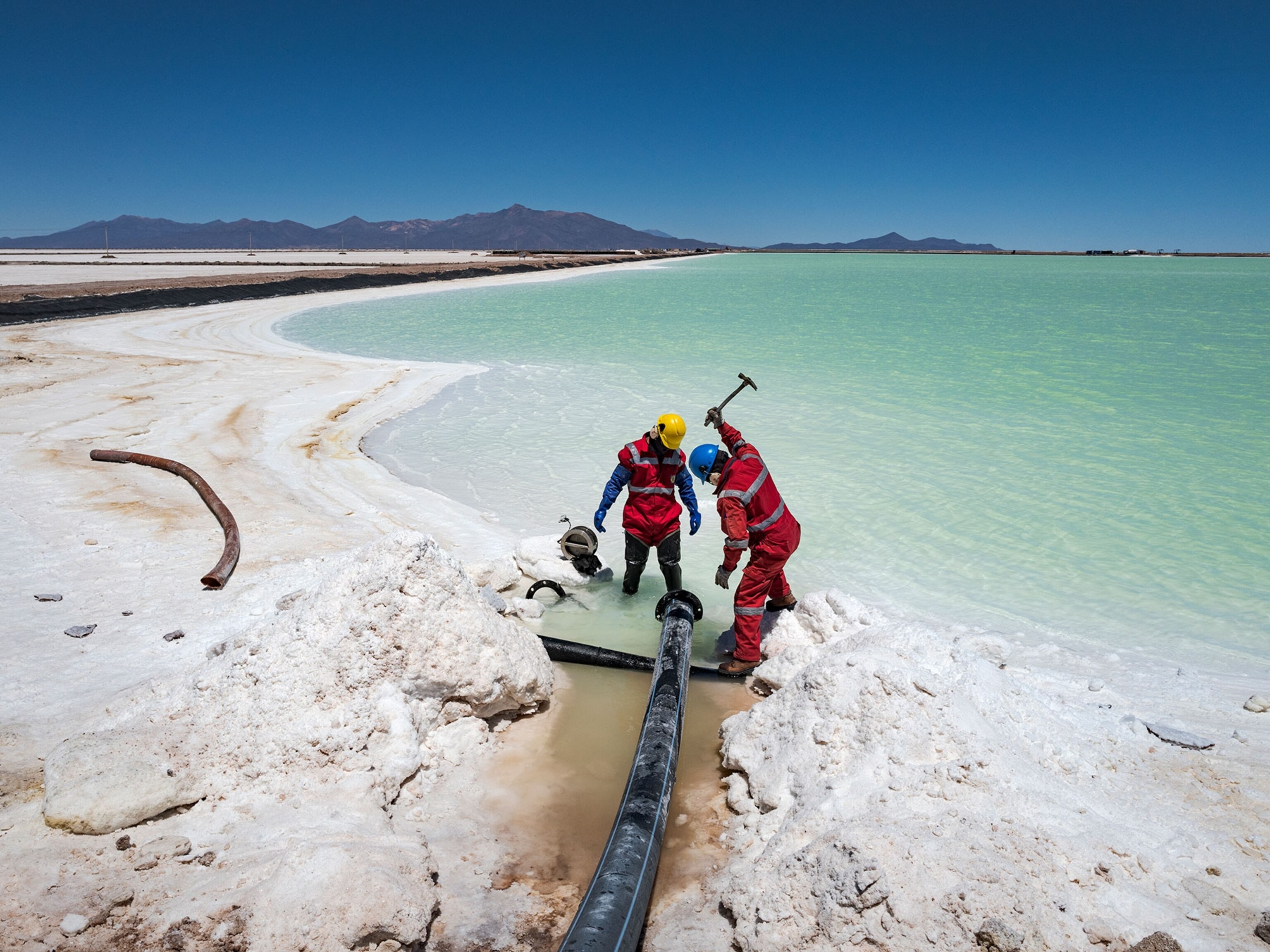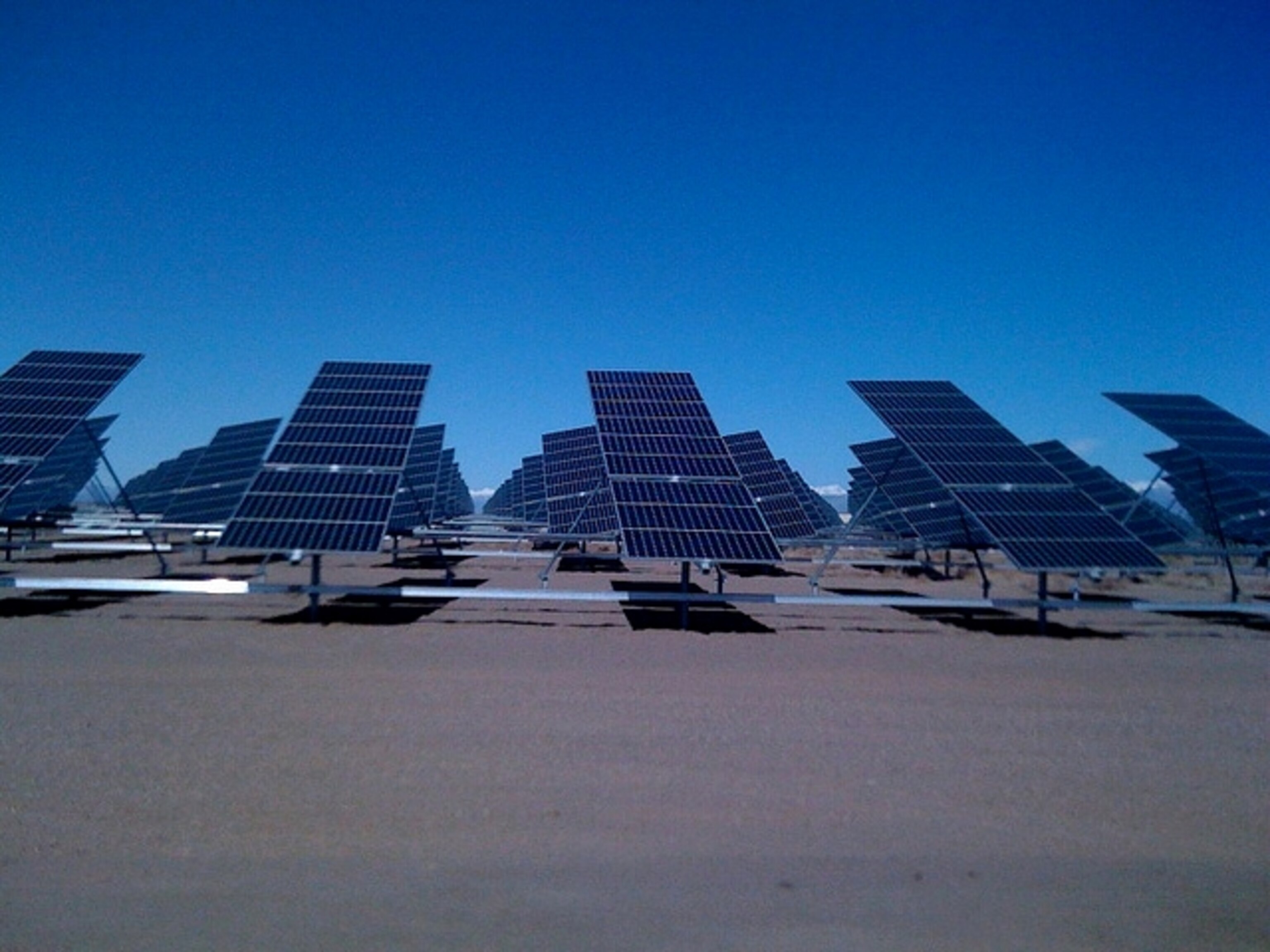
Can China Help Boost U.S. Clean Energy Investment?
Zero percent: That’s the U.S. clean energy investment growth rate over the past five years, according to the Pew Charitable Trusts. It might be a distressing sign in the face of the climate-change challenge, but backers of the Obama administration’s new emissions proposals believe the regulations could spur a turnaround—and there are signs that China, a country frequently seen as a competitor to the United States on clean energy, could be a significant source of the investment dollars.
Chinese outward direct foreign investment—“ODFI,” as the economists call it—has been on the upswing for at least a decade, according to Thilo Hanemann and his Rhodium Group colleague Daniel H. Rosen, authors of High Tech: The Next Wave of Chinese Investment in America, a 98-page report released this spring with the Asia Society, a U.S.-based educational nonprofit.
“While the first wave of Chinese OFDI was directed to trade facilitation and resource extraction, in recent years Chinese capital flows to developed economies have grown quickly, increasingly motivated by access to technology and markets for higher-value-added products,” Hanemann and Rosen write.
Enlightened self-interest is driving the shift, the pair say, as Chinese companies look abroad “to acquire strategic assets, increase their access to experienced and talented staff, and learn the ropes of regulation in advanced economies.”
Renewables have been no small part of the picture. At $699 million, Chinese investment in U.S. renewable energy ranked fourth among fifteen high-tech sector categories tracked between 2000 and 2013, behind only IT equipment, software and IT services, and automotive equipment and components, according to the Rhodium report.
Much of the renewable energy investment in recent years has come in the form of Chinese companies pouncing distressed U.S. companies. That was that case with Wanxiang’s purchase of various assets of bankrupt A123, the maker of electric-car batteries that had used around $132 million in federal grant money to build two plants in Michigan. In an interview, Hanemann said that move was particularly important because it showed that Chinese companies can overcome national security hurdles in investing in the United States. (See related post: “Battery Maker A123’s Bankruptcy by the Numbers.”)
At a smaller scale, the Chinese company Hanergy has scavenged for advanced solar companies – two that use copper indium gallium selenide (CIGS) technology for solar cells, MiaSolé and Global Solar Energy, as well as gallium-arsenide solar developer Alta Devices – that had been forsaken by U.S. investors. (See related story: “A123 Deal Ignites Debate Over China, Energy.”)
“U.S.-based investment sentiment is very low, based on all the government and [venture capital] money that was put into CIGS companies without any return,” said Finlay Colville, vice president at industry watcher NPD Solarbuzz. “CIGS companies that have found a backer from Asia to sustain operations are the lucky ones for now, with acquisition seen by many as the only exit strategy other than shutting down operations for good.”
There are only so many struggling companies up for grabs, however. And while Hanemann and Rosen are forecasting a big rise in Chinese investment in the United States in 2014, in an April paper, the Center for American Progress wrote that it will take action from Washington to boost clean energy investment, particularly for new projects. “More targeted efforts will be required to increase clean energy investments, especially in greenfield projects,” the liberal think tank said. “An estimated 20 percent of inward FDI goes currently toward greenfield investments, while 50 percent to 60 percent of FDI in China supports greenfield projects and investments.”
Hanemann said the U.S. indictment of five Chinese military officers on allegations of hacking into U.S. companies – including the operations of SolarWorld, which has led the fight for trade sanctions against Chinese solar manufacturers – could increase the chances that Chinese investment in the United States becomes unnecessarily politicized. But it shouldn’t, he said.
“In the bigger scheme of things, greater Chinese inbound FDI in tech is exactly what the U.S. should be interested in,” he said. “It shows that Chinese firms are willing to pay market rates for technology, it increases firms’ interest in global rules for [intellectual property rights] protection, and brings firms under U.S. jurisdiction, which means any violations of [intellectual property] rights can be effectively addressed through U.S. courts.”
Related Topics
You May Also Like
Go Further
Animals
- How can we protect grizzlies from their biggest threat—trains?How can we protect grizzlies from their biggest threat—trains?
- This ‘saber-toothed’ salmon wasn’t quite what we thoughtThis ‘saber-toothed’ salmon wasn’t quite what we thought
- Why this rhino-zebra friendship makes perfect senseWhy this rhino-zebra friendship makes perfect sense
- When did bioluminescence evolve? It’s older than we thought.When did bioluminescence evolve? It’s older than we thought.
- Soy, skim … spider. Are any of these technically milk?Soy, skim … spider. Are any of these technically milk?
Environment
- Are the Great Lakes the key to solving America’s emissions conundrum?Are the Great Lakes the key to solving America’s emissions conundrum?
- The world’s historic sites face climate change. Can Petra lead the way?The world’s historic sites face climate change. Can Petra lead the way?
- This pristine piece of the Amazon shows nature’s resilienceThis pristine piece of the Amazon shows nature’s resilience
- Listen to 30 years of climate change transformed into haunting musicListen to 30 years of climate change transformed into haunting music
History & Culture
- Meet the original members of the tortured poets departmentMeet the original members of the tortured poets department
- Séances at the White House? Why these first ladies turned to the occultSéances at the White House? Why these first ladies turned to the occult
- Gambling is everywhere now. When is that a problem?Gambling is everywhere now. When is that a problem?
- Beauty is pain—at least it was in 17th-century SpainBeauty is pain—at least it was in 17th-century Spain
Science
- Should you be concerned about bird flu in your milk?Should you be concerned about bird flu in your milk?
- Here's how astronomers found one of the rarest phenomenons in spaceHere's how astronomers found one of the rarest phenomenons in space
- Not an extrovert or introvert? There’s a word for that.Not an extrovert or introvert? There’s a word for that.
- NASA has a plan to clean up space junk—but is going green enough?NASA has a plan to clean up space junk—but is going green enough?
Travel
- Germany's iconic castle has been renovated. Here's how to see itGermany's iconic castle has been renovated. Here's how to see it
- This tomb diver was among the first to swim beneath a pyramidThis tomb diver was among the first to swim beneath a pyramid
- Food writer Dina Macki on Omani cuisine and Zanzibari flavoursFood writer Dina Macki on Omani cuisine and Zanzibari flavours
- How to see Mexico's Baja California beyond the beachesHow to see Mexico's Baja California beyond the beaches
- Could Mexico's Chepe Express be the ultimate slow rail adventure?Could Mexico's Chepe Express be the ultimate slow rail adventure?




